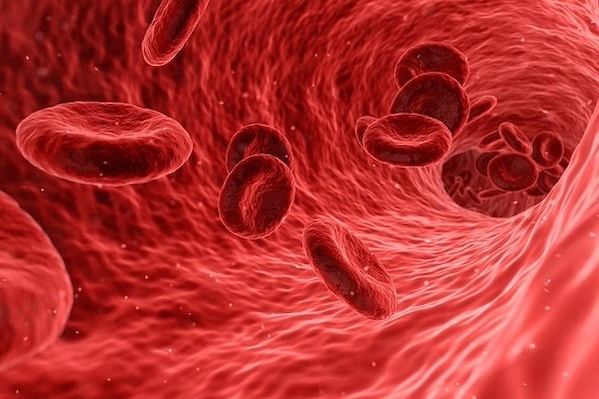FDA Approves Two Landmark Cell-Based Gene Therapies for Sickle Cell Disease
December 12, 2023
Source: drugdu
 493
493
Pharmaceutical Executive Editorial Staff
FDA approval of bluebird bio’s Lyfgenia and Vertex Pharmaceuticals' and CRISPR Therapeutics’ Casgevy marks significant milestone in the treatment of sickle cell disease.
The FDA has approved a pair of landmark treatments for sickle cell disease (SCD) in patients 12 years of age and older, marking the first cell-based gene therapies for SCD. As part of today’s regulatory action, both bluebird bio’s Lyfgenia (lovotibeglogene autotemcel [lovo-cel]) and Vertex Pharmaceuticals' and CRISPR Therapeutics’ Casgevy (exagamglogene autotemcel [exa-cel]) gained approval for the inherited blood disorders, which affect approximately 100,000 people in the United States.
 “Sickle cell disease is a rare, debilitating and life-threatening blood disorder with significant unmet need, and we are excited to advance the field especially for individuals whose lives have been severely disrupted by the disease by approving two cell-based gene therapies today,” Nicole Verdun, MD, director of the Office of Therapeutic Products within the FDA’s Center for Biologics Evaluation and Research, said in a press release.1 “Gene therapy holds the promise of delivering more targeted and effective treatments, especially for individuals with rare diseases where the current treatment options are limited.”
“Sickle cell disease is a rare, debilitating and life-threatening blood disorder with significant unmet need, and we are excited to advance the field especially for individuals whose lives have been severely disrupted by the disease by approving two cell-based gene therapies today,” Nicole Verdun, MD, director of the Office of Therapeutic Products within the FDA’s Center for Biologics Evaluation and Research, said in a press release.1 “Gene therapy holds the promise of delivering more targeted and effective treatments, especially for individuals with rare diseases where the current treatment options are limited.”
The approval of Casgevy is the first for a novel genome editing technology, which represents a significant advancement in gene therapy. In a press release, Vertex stated that approximately 16,000 patients with SCD may be eligible for the CRISPR/Cas9 genome-edited cell therapy, which offers the potential of a functional cure for SCD.2
“Casgevy’s approval by the FDA is momentous: it is the first CRISPR-based gene-editing therapy to be approved in the US. As importantly, Casgevy is a first-in-class treatment that offers the potential of a one-time transformative therapy for eligible patients with sickle cell disease,” said Reshma Kewalramani, MD, chief executive officer and president of Vertex, in the release.
The approval of Casgevy was based on findings from the Phase 1/2/3 CLIMB-121 clinical trial (NCT03745287) conducted exclusively in patients with SCD, as well as the Phase 3 long-term follow-up CLIMB-131 (NCT04208529) trial, which enrolled patients with SCD and patients with transfusion-dependent β-thalassemia.
Among 31 evaluable patients with SCD across both trials, 29 patients achieved the primary endpoint of freedom from vaso-occlusive crises (VOCs) for at least 12 consecutive months over a 24-month follow-up.1 Additionally, among these patients, 100% achieved the secondary endpoint of freedom from inpatient hospitalization for VOCs for at least 12 consecutive months, as of October 2023.3 Six adolescents were able to achieve both endpoints, whereas the patient who did not achieve the primary endpoint of freedom from VOCs was also an adolescent.
Lyfgenia consists of autologous CD34+ hematopoietic stem cells collected by plerixafor mobilization and apheresis, transduced with BB305 lentiviral vector (LVV) encoding the human beta-A-T87Q globin gene. The approval was based on findings from 36 patients enrolled in the ongoing Phase 1/2 HGB-206 clinical trial (NCT02140554) and two patients in the Phase 3 HGB-210 clinical trial (NCT04293185). The study found that between six- and 18-months post infusion, 88% (n = 28) of the patients achieved complete resolution of vaso-occlusive events.
Both of the treatments are produced from patients’ own blood stem cells, which are modified and administered as a one-time, single-dose infusion. Prior to treatment, patients administered Casgevy or Lyfgenia will be followed in a long-term study to evaluate the safety and efficacy of both products, according to the FDA.
Lyfgenia will include a black box warning in the label with information regarding the risk of hematologic malignancy. The FDA said that patients administered the therapy should have lifelong monitoring for these malignancies.
“These approvals represent an important medical advance with the use of innovative cell-based gene therapies to target potentially devastating diseases and improve public health,” Director of the FDA Center for Biologics Evaluation and Research, Peter Marks, MD, PhD, said in a press release.1 “Today’s actions follow rigorous evaluations of the scientific and clinical data needed to support approval, reflecting the FDA’s commitment to facilitating development of safe and effective treatments for conditions with severe impacts on human health.”
By editorRead more on
- The first subject has been dosed in the Phase I clinical trial of Yuandong Bio’s EP-0210 monoclonal antibody injection. February 10, 2026
- Clinical trial of recombinant herpes zoster ZFA01 adjuvant vaccine (CHO cells) approved February 10, 2026
- Heyu Pharmaceuticals’ FGFR4 inhibitor ipagoglottinib has received Fast Track designation from the FDA for the treatment of advanced HCC patients with FGF19 overexpression who have been treated with ICIs and mTKIs. February 10, 2026
- Sanofi’s “Rilzabrutinib” has been recognized as a Breakthrough Therapy in the United States and an Orphan Drug in Japan, and has applied for marketing approval in China. February 10, 2026
- Domestically developed blockbuster ADC approved for new indication February 10, 2026
your submission has already been received.
OK
Subscribe
Please enter a valid Email address!
Submit
The most relevant industry news & insight will be sent to you every two weeks.



